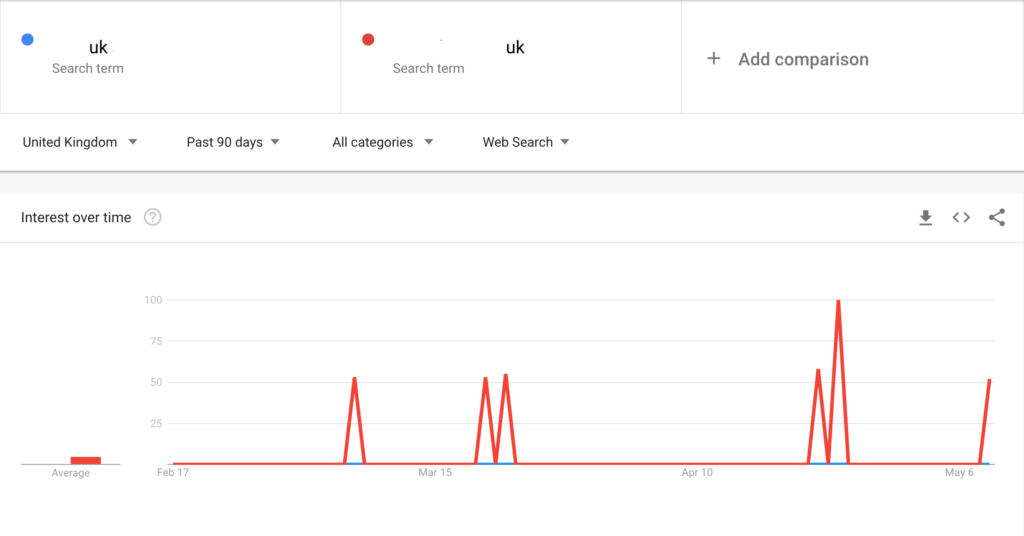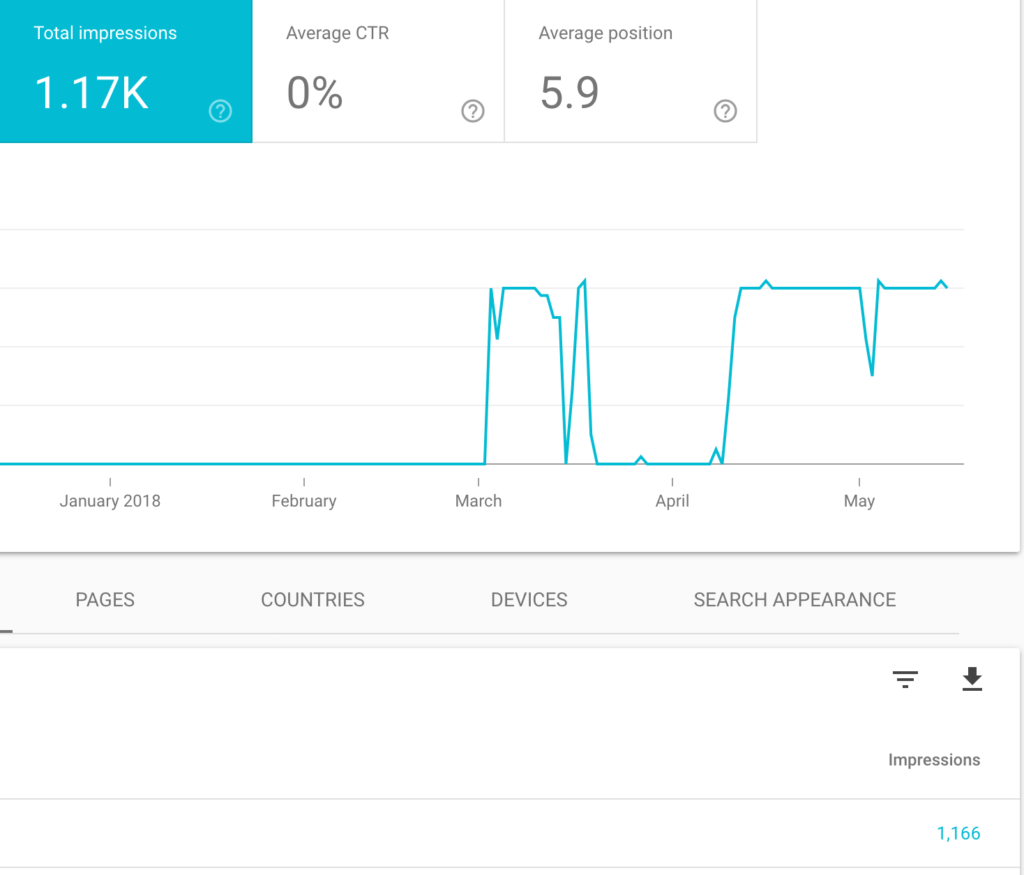There is a lot of speculation concerning the influence of rank tracking on the reported search volume of keywords. In this experiment, I took two very closely related keywords which were initially not seen as two separate keywords by Google and set them both to be tracked regularly. I am not going to disclose the actual keywords but here is an explanation for the readers to understand their nature:
– keyword 1: xxx xxx xxx uk
– keyword 2: xxx uk xxx xxx
At the beginning of this test in late February 2018, Google was seeing keyword 1 as a “proper” keyword and reported the monthly search volume for it as 720, whereas keyword 2 did not get a search volume of its own and was seen as simply a variation of keyword 1.
After regular tracking of both keywords in the UK Google, here are the historic monthly search volumes for keyword 1 as per Google AdWords keyword tool:
February 2018: 100 – 1K
March 2018: 1K – 10K
April 2018: 100 – 1K
Keyword 2 still does not get any numbers reported and is simply dropped by the keyword tool, however if we set the maximum CPC as £100 and look at the next month’s forecast, we get the following:

Note that at the beginning of the experiment, no impressions were predicted for keyword 2.
In the meantime, Google Trends shows the following graph:

I.e. there is no interest whatsoever reported for keyword 2. Seeing as the search volume we are dealing with in this case is pretty low, this might be the reason why Google Trends is not reporting much as it might simply be not sensitive enough for those volumes.
It is also interesting to note that the SERPs for both keywords are (and have always been) pretty different. Also, there appears to be a much greater flux over time for the keyword 2 SERPs.
Flux for keyword 1 SERPs:

Flux for keyword 2 SERPs:

My understanding is that Google does see the changes in the search volume and this is what is reflected in the AdWords traffic forecasts, however neither Google Keyword Tool’s nor Google Trends’ reporting is accurate enough (either due to the technical limitations or on purpose, or even both) to show them.
P.S. For the above experiment, I did not have Google Search Console impressions data to confirm or disprove anything, but here is a screenshot of impressions as reported by Google Search Console for a site I control that is related to another similar experiment – in this case, in the beginning of March I started tracking a keyword with 0 search volume (something nobody ever searches for) where my site appears in the SERPs – and here is what we see in the Search Console:



Comments are closed.